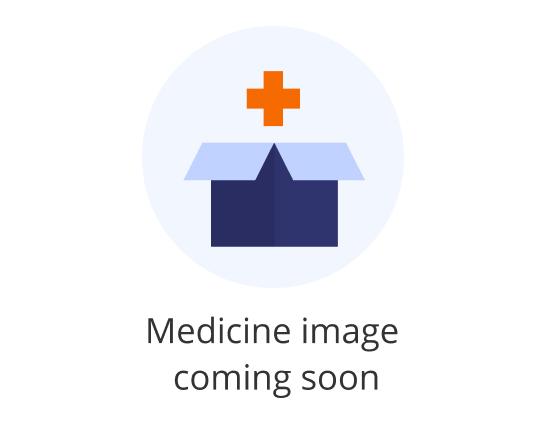How can you slow down Alzheimer’s disease? Some approaches to try.
Last updated: 04 December 2024

You can legally access new medicines, even if they are not approved in your country.
Learn howA breakthrough in Alzheimer's treatment may be coming within just 5 years. At least according to Prof. Dr. Peter de Deyn from the Alzheimer Center Groningen 1. Most likely, it will involve a combination of medications rather than a single miracle pill. Nevertheless, this is a hopeful perspective for all patients.
If you have recently been diagnosed, how can you slow the progression of the disease, until more advanced treatments become available? Here are some medicines and lifestyle changes that you can consider.
Medicines to slow down Alzheimer's disease
Current Alzheimer's medicines in the Netherlands
In the Netherlands, several medicines are approved for treating Alzheimer's disease. They are aimed primarily at managing symptoms and improving quality of life.
Commonly prescribed medicines include:
- Donepezil (Aricept). This medicine increases levels of acetylcholine, a neurotransmitter associated with memory and learning. It is typically prescribed for early to moderate stages of Alzheimer's.
- Galantamine (Razadyne). Like donepezil, galantamine increases the presence of acetylcholine. This makes it a suitable treatment for mild to moderate Alzheimer's.
- Memantine (Namenda): This medicine works differently. It regulates glutamate, another neurotransmitter involved in learning and memory. Memantine is often prescribed for moderate to severe Alzheimer's.
These medications can help alleviate symptoms and improve cognitive function. However, they do not halt or reverse the underlying disease process.
Recent developments in Alzheimer's treatment worldwide
Recent advancements in Alzheimer's research have led to the development of new therapies:
-
Leqembi (lecanemab)
One of the recent treatments is Lecanemab. It has shown efficacy in slowing the progression of Alzheimer's disease in clinical trials. According to the reported clinical trial outcomes, Lecanemab demonstrated a 27% reduction in cognitive decline over 18 months for patients with early-stage Alzheimer's 2.
Lecanemab is approved by the FDA in the USA and the MHRA in the UK. In 2024, its approval application was initially rejected by the EMA, but in November 2024, it was announced that Leqembi will be approved by the EMA. However, until the approval becomes official and the medicine becomes available in the Netherlands, a few more months will pass.
-
Kisunla (donanemab)
Another recent development in Alzheimer's treatment is Donanemab. First approved in the USA in July 2024, it's the newest available medicine with potentiual to slow down Alzheimer's. It's currently under review by the EMA for potential approval in the EU. Since October 2024, donanemab is also approved in the UK.
Clinical trial results suggest that Donanemab may slow down cognitive decline in early Alzheimer's patients by as much as 36% over 18 months 3. Like Leqembi (lecanemab), the treatment targets amyloid plaques in the brain and aims to reduce their accumulation.
Neither Lecanemab nor Donanemab are cures for Alzheimer's. However, they represent a first step toward slowing down and managing the disease. Although neither of the medicines is currently available in the Netherlands (with Leqembi hopefully coming soon), you can buy them for your personal use if you have a prescription from your doctor. This process is called Named Patient Import and Everyone.org can support you every step of the way.
Lifestyle changes to slow down Alzheimer's disease
In addition to medicines, adopting healthy lifestyle changes can significantly impact the progression of Alzheimer's disease. Below are some important lifestyle aspects to pay attention to if your goal is to slow down Alzheimer's disease.
Nutrition and diet
A brain-healthy diet can support cognitive function and overall well-being. The Mediterranean diet, rich in fruits, vegetables, whole grains, lean proteins, and healthy fats, is particularly beneficial. Consider including more fresh products, fish, nuts, and grains in your daily meals. Nutrients like omega-3 fatty acids, antioxidants, and vitamins can have a positive impact on brain health.
Physical activity
Regular exercise plays a vital role in maintaining cognitive function. Staying physically active—e.g. by cycling, walking, or swimming—can improve blood flow to the brain and reduce the risk of cognitive decline. Luckily, in the Netherlands, it's easy to incorporate regular physical activity into daily routines. Aim for at least 150 minutes of moderate-intensity exercise each week to promote brain health and overall fitness.
Using your brain
Keeping the brain active is crucial for slowing cognitive decline. Engaging in intellectually stimulating activities can enhance cognitive abilities. Many community centers and libraries in the Netherlands offer classes and activities. These can help keep the mind sharp while encouraging social interaction.
Social interaction
Social engagement is essential for mental health. It can help reduce feelings of isolation and depression often associated with Alzheimer's. Participating in local community groups, clubs, or family gatherings can help maintain social connections. In the Netherlands, initiatives like the Alzheimer Café provide supportive environments. There, those with Alzheimer's and their caregivers can connect with others facing similar challenges.
Stress management
Managing stress is critical for people with Alzheimer's. Techniques such as mindfulness, meditation, and yoga can help reduce anxiety and improve mood. Many organizations in the Netherlands offer resources and programs focused on mental health. They can help prioritize your emotional well-being.
Slowing down Alzheimer's disease: It's a journey
There is currently no cure for Alzheimer's disease, but medicines and lifestyle changes can significantly impact its progression.
Although the latest breakthroughs in Alzheimer's treatment, lecanemab and donanemab, aren't available in the Netherlands yet, you can get them if your doctor prescribes them. The regulation allowing that is called Import op Artsenverklaring.
If you have a prescription for lecanemab or donanemab, our expert team can help you get them in the Netherlands immediately. Just get in touch.
References:
- Medicijnen tegen dementie. Alzheimer Nederland, Accessed 10 October 2024.
- Lecanemab in Early Alzheimer’s Disease. The New England Journal of Medicine, Accessed 10 October 2024.
- Lilly's Donanemab Significantly Slowed Cognitive and Functional Decline in Phase 3 Study of Early Alzheimer's Disease | Eli Lilly and Company. Eli Lilly Investors, Accessed 10 October 2024.





